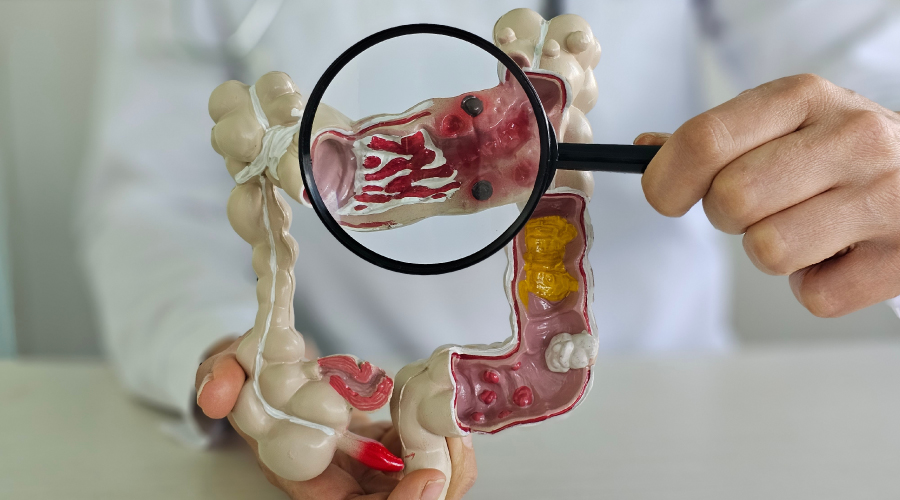

Colorectal surgery involves a number of operations that are performed to treat diseases of the colon, rectum and anus. This field is important for the management of different diseases of the colon and rectum, such as colorectal cancer, which is among the most frequent and fatal types of cancer. Knowledge of the colorectal cancer symptoms, its indications and the postoperative period can assist patients and their families in managing the difficulties related to this.
What is Colorectal Meaning?
Colorectal Meaning refers to anything pertaining to the colon and rectum, which are crucial parts of the digestive system. In medical contexts, “colorectal” often relates to conditions and diseases that affect these areas, such as colorectal cancer. Understanding colorectal meaning helps in recognizing symptoms and issues related to the colon and rectum, including the importance of identifying colorectal cancer symptoms early for effective treatment and management.
Colorectal Cancer
Colorectal cancer is cancer that starts in the colon or rectum and is the third most common cancer globally. This is why early diagnosis and treatment are very important in increasing survival rates. Knowledge of the colorectal cancer symptoms can help in early diagnosis of the disease.
Colorectal Cancer Symptoms
Common colorectal cancer symptoms include:
Alterations in the pattern of bowel movements (loose stools, difficult bowel movements or passage of thin stools)
- Stool colour change or passage of red or black coloured stool
- Abdominal pain and/or discomfort that lasts for more than two days or is chronic, with symptoms such as cramps or gas
- The sensation of not having emptied the bowel to the extent one would desire
- Weakness or fatigue
- Unexplained weight loss
These are some of the symptoms that if identified and the patient seeks medical attention early enough, then the disease can be diagnosed early and hence treated.
Types of Colorectal Surgery
Most individuals are not thrilled with the prospect of surgery, but it is sometimes essential. Educating yourself about surgery based on the colorectal cancer symptoms can reduce stress for you and your family.
Polypectomy and Local Excision
These are less invasive surgeries that are employed to excise polyps or early-stage cancer in the colon or rectum. Polypectomy is the removal of polyps during colonoscopy while local excision is the removal of small cancerous tissues and some healthy tissue around it.
Colectomy
A colectomy is a surgery that entails the resection of a portion or the entire colon. In cases where the disease is not severe, a hemicolectomy (removal of half of the colon) or a total colectomy (removal of the whole colon) may be done. This surgery is commonly performed for colorectal cancer, severe diverticulitis or IBD (Crohn’s disease or ulcerative colitis) treatment.
Proctectomy
Proctectomy is the surgical procedure that entails the excision of the rectum and is commonly done for rectal cancer. Sometimes, a patient may require a permanent colostomy, which is an opening made on the abdomen for the passage of faeces.
Minimally Invasive Surgery
Laparoscopic and robotic surgeries are modern approaches to traditional open surgeries in which the surgeon makes small incisions and uses special instruments. These approaches have benefits like less pain, shorter hospitalisation and quicker rehabilitation than those of open surgery.
Colorectal Surgery Recovery Time
The time taken to recover from colorectal surgery depends on the kind of surgery that has been done, the general health of the patient and the development of complications.
Generally, recovery involves:
Immediate Postoperative Period
Most patients are admitted for a few days to a week to observe for possible complications like infection or bleeding. Pain control, getting out of bed and gradual feeding are some of the important components of the early postoperative period.
Short-term Recovery
Some of the symptoms that patients may experience in the weeks following surgery include fatigue, changes in bowel movements and discomfort. One has to adhere to the doctor’s recommendations concerning nutrition, exercise and the treatment of the wound. The majority of patients are able to resume their normal activities within 4-6 weeks post-surgery; however, this depends on the patient.
Long-term Recovery
It is important to note that it may take up to several months for a patient to fully recover after colorectal surgery. Bowel control may also be a problem especially if the patient has been operated on extensively or has had a colostomy. Subsequent visits are required to check for the reappearance of the disease and to address the consequences.
Conclusion
Colorectal surgery is an essential part of the management of several conditions of the colon and rectum, especially cancer. The Advancements in early diagnosis, better surgical procedures and proper postoperative management can enhance the quality of life of patients who undergo this surgery.




